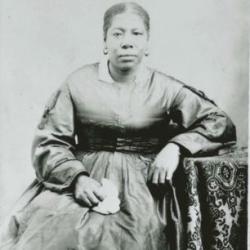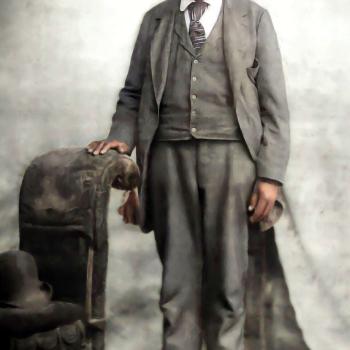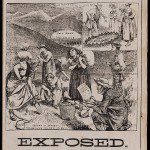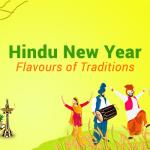 Last week, I remarked on the pros and cons of Garth Brooks’s stance on digital music (in short, he’s agin it). However, I scraped together a few favorites from Youtube, which happily included the deep album cut “Ireland.” I’m using it to revive my “Anatomy of a Song” series, which was sorely neglected after only one entry.
Last week, I remarked on the pros and cons of Garth Brooks’s stance on digital music (in short, he’s agin it). However, I scraped together a few favorites from Youtube, which happily included the deep album cut “Ireland.” I’m using it to revive my “Anatomy of a Song” series, which was sorely neglected after only one entry.
“Ireland” comes from the 1995 release Fresh Horses, a project that tinkered with a wide palette of sounds. This stirring ode to the Emerald Isle has Garth getting in touch with his inner Irish tenor. It was co-written by Brooks with Stephanie Davis and Jenny Yates in the style of a folk ballad, and it’s one of the best-crafted song lyrics I’ve heard. Aspiring and professional writers alike should take note.
It begins with a poetic prologue, personifying “mother earth” with vivid images from nature and concluding that “her heart, it is in Ireland.” This sets the tone with an other-worldly quality before launching into the main body of the song:
They say mother earth is breathing
With each wave that finds the shore.
Her soul rises in the evening,
For to open twilight’s door.
Her eyes are the stars in heaven,
Watching o’er us all the while.
And her heart, it is in Ireland,
Deep within the Emerald Isle
The song’s main story has a military setting, with bagpipes and bodhrans a’blazing. The opening line, “We are forty against hundreds” recalls “The Charge of the Light Brigade,” so you know this probably isn’t going to end well. The conflict is unspecified except for the information that it’s “someone else’s bloody war.” In the spirit of folk revivalist ballads, it’s rather down on war in general: “We know not we’re fighting, or what we’re dying for.” But, also in the spirit of revivalist ballads, the lyrics are carefully chosen and beautifully rhymed. Consider this precisely crafted verse:
Oh the captain, he lay bleeding.
I can hear him calling me.
“These men are yours now for the leading.
Show them to their destiny.”
As I look up all around me,
I see the ragged, tired, and torn.
I tell them to make ready,
‘Cause we’re not waiting for the morn.
Even as the song’s tone is very bleak, it taps into the solemn thrill of a last battle, a glorious final charge. They strike while they still have the element of surprise, knowing that the enemy “will storm us in the morning.” The lyrics paint a picture of thick darkness and heavy fog, with no sound but the breathing of the enemy’s horses as they draw closer. And in the final moments, “There are no words to be spoken, just a look to say goodbye. I draw a breath, and night is broken, as I scream our battle cry.”
I have not yet mentioned the chorus, which gathers new weight each time it’s repeated:
Ireland I am coming home
I can see your rolling fields of green
And fences made of stone
I am reaching out, won’t you take my hand?
I’m coming home, Ireland
The obvious poignancy is that these forty are not coming home and never will. But there is a pagan sense that when you die, you always go to a place that feels like home. This makes terrible theology, but it also makes great poetry. And it does tap into something true about the human heart, which of course was most beautifully captured by C. S. Lewis in The Last Battle. The longing that we feel for our earthly homes is a reflection of our longing for the home we were ultimately created for. Lewis is imagining something like more like the New Earth than the New Heaven, where we will literally find the same countries and the same lands we have loved. We will see their alabaster cities gleam, undimmed by human tears. Of course, this is speculative, but it’s a clever and vivid way of capturing how we surely will feel when we reach our eternal home.
So it’s only natural that the last thing these ragged, grim-faced soldiers think of is the rolling green fields of home. It will not be much longer now, they think. Soon they can rest. Soon they can lay down their burdens, to study war no more. The final line then wraps back around to the beginning, with a significant change: “We were forty against hundreds.”
[Note: I used to have a link to the original version of the song here, but Brooks’s scouts seem to have pulled it down, since YouTube is “the devil” and all, according to him at least. So here’s a vigorous cover band version instead.]If I have a nit to pick, it’s that I think the word “forge” is misused in the line “as we forge the dark and fear.” One can “forge through” darkness, as in “press on through” darkness. One can also “forge” something as a metaphor for the blacksmith’s craft of forging metal. But we wouldn’t talk about “forging x and y.” So this seems like a grammatical slip. So there, you see, I nitpick my favorites too!
















